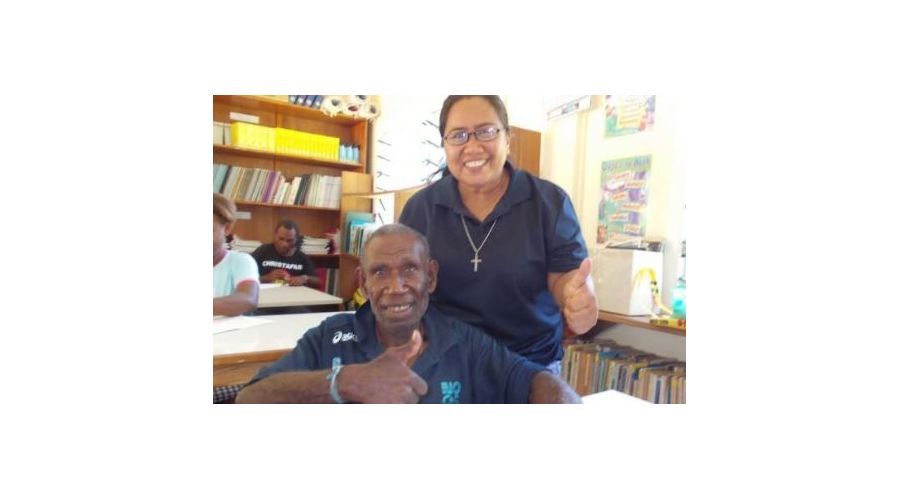14 July 2022
More people will begin using sign language every day if efforts from a new project in Solomon Islands to come to fruition.
Deafness is one of the most common disabilities reported in the country, and with little support available it often leads to high levels of poverty-related disease and extreme isolation for deaf people.
The new sign language project aims to address these problems by normalising the use of sign language and increasing the use of it.
Representatives from the Australian Catholic University (ACU) and the Catholic Education Authority in Honiara are leading the project.
They will train deaf and hearing people across the Solomons in Australian Sign Language, before sending them into remote communities where deaf children and young adults live.
Sister Maria Fe Rollo, who serves at the Honiara San Isidro Care Centre for disabled children, said the deaf were often left behind despite some of them developing their own unique ways of communicating.
"Many who are still out there in the communities really live in isolation because of this barrier in communication.
"There is the home sign that they've developed with the family, but there is also limitation into that kind of communication which may be helpful in their family or their immediate community, but when they go to a bigger community they are left out."
Project lead Dr Mellita Jones, who is an associate professor at ACU, said relatives of deaf children and the wider community were being encouraged to learn to sign.
"We're not just restricting it to children, we're also running sessions after school so that parents and families can come and learn sign language.
"It's just about that connection with people - it's a human condition that we connect with one another."
Trainees of the project will be able to earn a Certificate of Teaching and Learning from the university, recognised by the Solomon Islands' Ministry of Education for employment in schools or other institutions.
Catholic Education Authority director Modesta Hasiau said the qualification will address the shortage of disabled learning teachers.
"We only have a limited number of teachers who are passionate, they were only passion-driven but they are not qualified teachers. Even the Technical Teachers College doesn't also address that need, so ... we are working to bridge that gap in that area as well."
Former school principal Jackson Meke said implementing inclusive education in the past had been difficult given the limited resources and funding.
He said the sign language project was a starting point for the Solomons government to take inclusive education more seriously.
"There is very little effort in implementing or preparing schools in Solomon Islands to address inclusive education for students with general disabilities," he said.
"When I was the principal we tried our best to address an individual case at our school with vision impairment and it is quite expensive to have even one student to try and treat him differently, and that is something that the government needs to know."
With the Solomon Islands international border now open, Dr Jones said she was looking forward to working first-hand with deaf children and their communities.
"There's a lack of empowerment for many people, and so for me, working with deaf people who feel so isolated in their communities - I think that's a really unique way [to] try and get some empowering educational opportunities, and I'm really driven by that. So I feel very privileged to have the opportunity to do it."
Source- Radio New Zealand.
Yours sincerely
Frank Short



